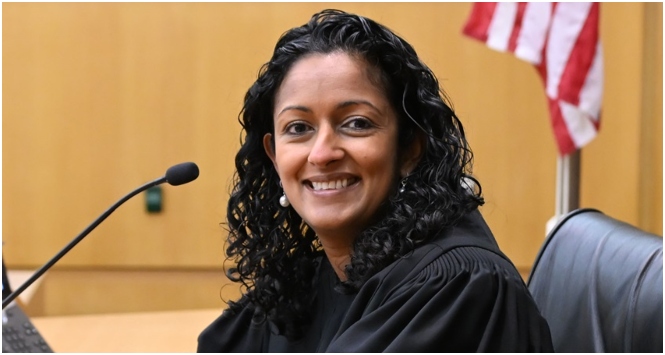A newly appointed federal judge, Sparkle L. Sooknanan, made an immediate impact on the bench by issuing an emergency order on August 31 temporarily blocking the Trump administration from deporting thousands of Guatemalan minors who had been placed on planes awaiting removal.
The ruling came after the National Immigration Law Center filed an emergency request, arguing that deporting the children would expose them to grave harm and violate legal protections afforded to unaccompanied minors. Attorneys for the children said that the administration had ignored due process safeguards as well as statutory requirements intended to protect vulnerable youth.
Judge Sooknanan, who was appointed to the U.S. District Court for the District of Columbia in January 2025, issued a temporary restraining order in the early morning hours. The order initially caused some confusion, as immigration authorities continued transferring children to charter flights. Once alerted by counsel for the minors, Judge Sooknanan convened an emergency hearing midday and clarified that her ruling applied to all Guatemalan children currently in federal custody.
With planes preparing for takeoff in Texas, Judge Sooknanan directed the administration to remove the children and keep them in shelters for at least 14 days while the case proceeds. In a later filing, the government confirmed that the children had been taken off the flights.
“I don’t want there to be any ambiguity about what I am ordering,” Judge Sooknanan said from the bench. “You cannot remove any children” while litigation is pending.
From Trinidad and Tobago to the Federal Bench
Judge Sparkle L. Sooknanan was born in Trinidad and Tobago and built a distinguished legal career before joining the federal judiciary. She graduated summa cum laude from St. Francis College in 2002, earned her M.B.A. with distinction from Hofstra University in 2003, and received her J.D., summa cum laude, from Brooklyn Law School in 2010.
Her clerkships included service with Judge Eric N. Vitaliano of the U.S. District Court for the Eastern District of New York, Judge Guido Calabresi of the Second Circuit Court of Appeals, and Justice Sonia Sotomayor of the U.S. Supreme Court. She later joined the Department of Justice through the Attorney General’s Honors Program, serving in the Civil Division’s Appellate Staff, and later returned to DOJ as Deputy Associate Attorney General and as Principal Deputy Assistant Attorney General in the Civil Rights Division.
Judge Sooknanan also spent several years in private practice at Jones Day in Washington, D.C., where she became a partner in 2020 and developed an active pro bono docket.
Legal Significance
The case underscores the critical role of federal courts in reviewing executive branch actions on immigration, especially where the rights of children and asylum seekers are concerned. Legal advocates argued that the Trump administration’s deportation drive bypassed statutory protections and international obligations.
Judge Sooknanan’s ruling does not permanently resolve the issue but temporarily halts removals while the court considers broader constitutional and statutory claims. For now, roughly 2,000 Guatemalan children remain in federal shelters rather than being deported without a full hearing.
The decision marks one of the first high-profile rulings by Judge Sooknanan since her appointment, highlighting both her judicial independence and the continuing tension between executive immigration policies and the judiciary’s role in safeguarding due process.

